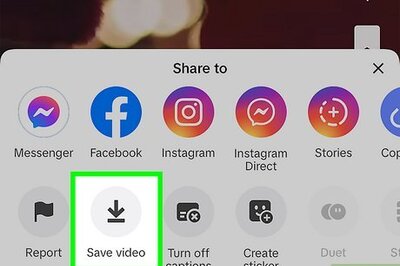
views
Gautam John, 32, is well prepared. On the professional front, he has done well. He dabbled in professions like law and even tried his hand at business, but stumbled onto Pratham Books and Akshara Foundation, where he works for the new projects division. On the personal front, he is all set to get married in January next year. And five years ago, he prepared himself for something else: Death.
He created a digital file that contains all his logins and passwords to all his online identities and accounts. He considers this his digital will and has given access to one trusted advisor. “My digital identities are extensions of my real world identity and post my death, I’d like them to be dealt with in particular ways,” he says. “Allowing a trusted advisor access to them is the only way to do that.”
John is right in thinking it may be the only way to take care of all things digital because today by Indian law, there is no room for a digital will. “There is no provision in the IT Act to write a will in a digital form,” says N Vijayashankar, a techno-legal information security consultant based in Bangalore.
But the IT Act may not be the problem. “If a digital will has to have sanctity, there has to be an amendment in succession laws,” says Gopal Sankaranarayana, a Supreme Court lawyer. “At the moment, courts accept wills in writing and not digital wills.”
No one denies the need for digital wills, but no one seems to be doing anything about it either. “99.9 per cent of Indians have not given it much thought,” says Kiruba Shankar, CEO, Business Blogging, a social media consultancy company in Chennai. “A digital will has two parts,” says Shankar. “One, a real will that you digitise with an online signature; two, digital assets which will add on to all your user names and passwords.”
This makes a difference to people like Shankar who have a significant online presence. He says, “I own about 40 domain names and at least a few of them are worth thousands of dollars.” Another online personality, Madhu Menon, a user experience specialist and chef, says, “It is something I have thought about, but I would like to postpone it because nobody would like to think they will kick the bucket in their 30s.”
Shankar says that he has been thinking about creating a digital will after a close friend of his was diagnosed with leukaemia and was given three months to live. Menon, however, questions the relevance of leaving his online work to family. He says, “Once I have earned my money for an article, what value will that have to anyone else?”
The valuation of your digital assets then comes into play and for Gaurav Mashruwala, a financial planner, it becomes very important. He says, “Access to your bank account is controlled digitally, but the content of that account is not digital.” Today, as more and more people conduct their financial transactions online, it is important to leave those user names and passwords with a trusted person.
But Sankaranarayana counters this thought process. He says, “When banks have to deal with several thousand crore sitting physically in accounts of deceased people today, where there is endless red-tape impeding the claims of their successors, how easily will they move to a digitised format?”
A few law firms that Forbes India contacted say they have not had any enquiries for digital wills and the ones that had received requests say it came from Indian couples returning from the US. Mashruwala, says, “I have had two clients out of the 90 clients under families [section] ask for a digital will.” To him, it means to include a line in a will giving one person the authority over online user names and passwords.
Online companies have a similar way of releasing a person’s account. For example, Gmail has a stringent policy to access a deceased person’s account. It says, “Any decision to provide the contents of a deceased user’s e-mail will be made only after a careful review, and the application to obtain e-mail content is a lengthy process.” Twitter, on the other hand, requires you to state your relationship with the deceased as well as a link to the username and public records of the obituary. Facebook has a page where it can be notified regarding a deceased person’s account.
While Facebook, Twitter and Gmail, are online services for your personal accounts, there are numerous Web sites that now provide services to give your loved ones access to all your online accounts. Passmywill.com , legacylocker.com and aftersteps.com are a few.
So, while you log in to live your life, you can also choose the way you log out.


















Comments
0 comment